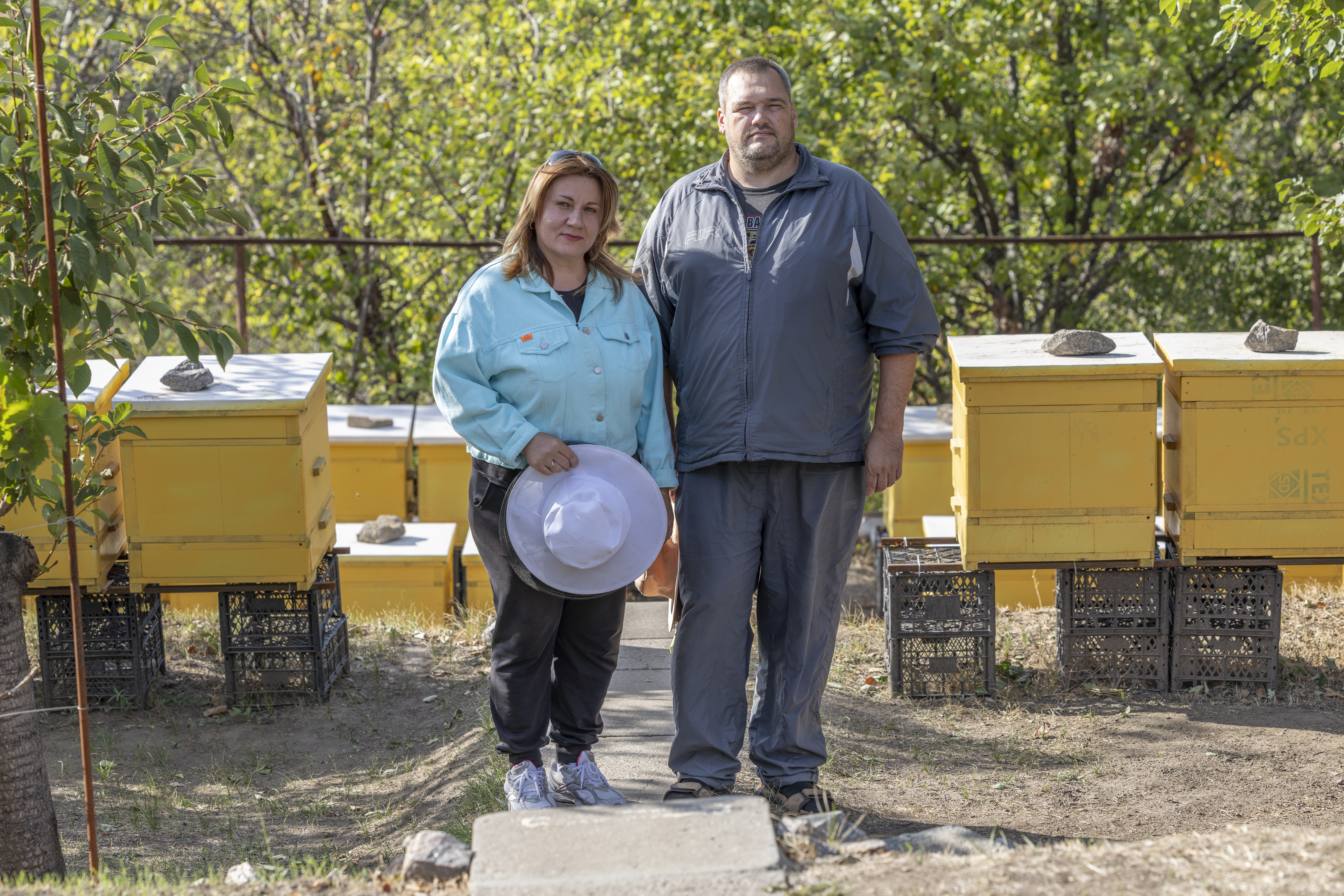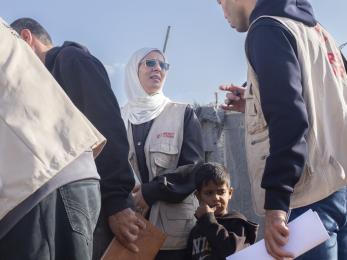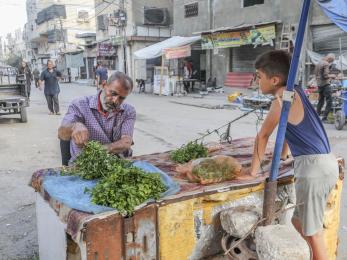A look back at 2020: Challenges, progress and a path forward
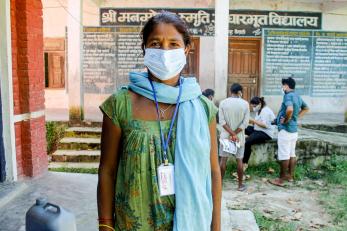
2020 may be coming to an end, but the challenges we faced this year continue — the COVID‑19 pandemic, intensifying political division, widening economic inequality, and the climate crisis, just to name a few.
While these challenges affect everyone — in every community — the fact is, they don’t affect everyone equally.
- The pandemic could force up to 115 million more people into extreme poverty this year — many in countries where too many families were already struggling with food insecurity and lack of access to adequate medical care.
- Young people, and particularly young girls, who have long had limited access to education are falling even further behind without technology and infrastructure for distance learning. An estimated 11 million girls might not return to school after the pandemic subsides, and nearly one-quarter of young people ages 18-24 stopped working because of the pandemic.
- The small-scale farmers who produce food for millions are losing their meager incomes to disruptions caused by the pandemic on top of extreme changes in temperature and rainfall that threaten their livelihoods.
As these complex challenges intertwine and overlap, they make everyday life even more difficult and dangerous for people already living through dire circumstances.
Yet in 2020 we saw people around the world come together to help others facing unnerving odds, as allies and advocates for not only their friends and community members, but for people they may never meet — providing financial support amid an economic crisis, donating protective gear to the people who need it most, and taking to the streets to demand justice for all.
Although the path forward from 2020 may feel uncertain, one thing has never been more clear: To change the trajectory for the better, we have to come together, work together, and support each other in building a brighter, safer, more just future we can all share.
Here’s a look at how we’re putting that spirit of community and collaboration to work in everything we do at Mercy Corps, in 2020 and beyond.
Helping communities often overlooked withstand crisis and emerge stronger
Since the COVID‑19 pandemic took hold, we’ve reached more than 15 million people in 34 countries — including displaced families, women and girls — with handwashing stations, hygiene kits, sanitation training, and public education campaigns to help slow the spread of the virus. In the Democratic Republic of Congo, we’re using wireless technology to continue serving displaced families while keeping them and our teams safe. In Colombia, we partnered with the Starbucks Foundation to help thousands of workers in the coffee industry stay healthy and stay in business. And in Tunisia, we’re using 3D printing technology to produce face shields for front-line workers at local hospitals.
At the same time, we’ve continued our work to respond quickly to communities in the aftermath of disaster.
In Haiti, we distributed emergency cash to help families affected by Hurricane Laura buy the supplies they needed most. And in Beirut, after massive explosions destroyed small businesses across the city — a lifeline for so many people already struggling through an economic crisis — we provided cash assistance to help business owners rebuild, reopen, and keep people employed.
From COVID‑19 to severe climate events, the skills and experience our teams have built over the past 40 years have helped us deliver lifesaving aid and supplies to the communities most in need. Our focus: Helping the most vulnerable people stay healthy and safe, meet urgent needs, and build resilience for the future.
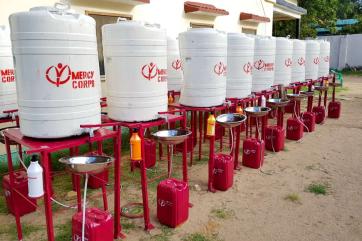
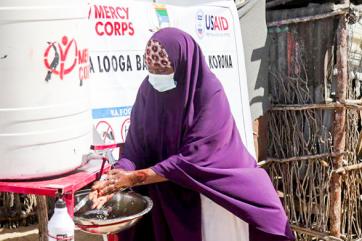
Equipping those most threatened by climate change to lead the way through it
We’re connecting small-scale farmers — who feed 80 percent of people in lower-income countries — with data from NASA satellites to help them adapt how and what they grow in the face of a changing climate.
We’re also developing new models of funding that give farmers incentives to shift to more sustainable agricultural methods, and delivering training in modern farming practices to help them produce more, earn more, and feed more people. This is especially critical now, as the pandemic threatens to nearly double the number of people living with acute food insecurity to 265 million.
We know that the climate crisis is a fact of life for millions of the people we work with around the world, and particularly for those in areas where it’s already difficult to grow and access enough food. That’s why our programmes go beyond distributing meals or supplies to meet today’s needs, and empower people on the front lines of the crisis — those at the greatest risk of getting left behind — to lead the charge forward.
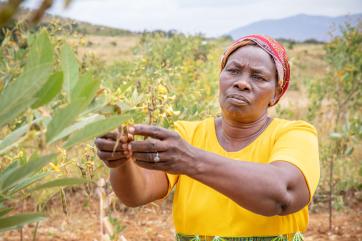
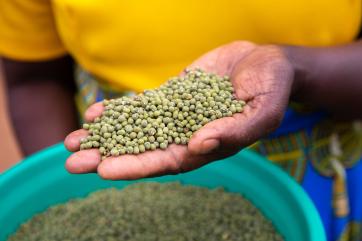
Empowering a new generation to shape the world they deserve
We’re developing mentorship and networking programmes to improve the odds for young people entering a discouraging job market, where opportunities have become even more scarce in the economic wake of the COVID‑19 crisis. By helping them learn from seasoned professionals and build digital skills, we’re preparing them for high-quality jobs now and the positions that will be most in demand in the coming years.
Our Youth Impact Labs in East Africa and Jordan support young tech innovators as they bring ideas to reality, generating income for themselves and the people their new businesses employ. And in Nigeria, our Educating Nigerian Girls in New Enterprises (ENGINE) programme has helped thousands of young girls build the skills, confidence, and networks they need to create the future they want for themselves and reach their full potential.
Believing a brighter future is possible, and seeing a practical path toward it, can be life changing for young people who bear the burden of generations of poverty. As we work to help people face challenges now, everything we do is designed to set them up for success in the future and unlock their potential to transform not only their own lives, but their entire communities.
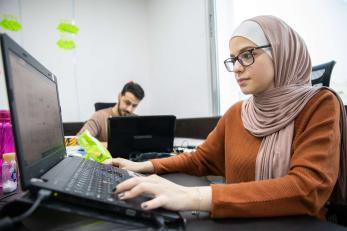
What’s next is up to all of us
This is just a sampling of how our global community has helped people push through incredible challenges this year, and a window into what’s to come. Because even though 2020 has felt like a constant drumbeat of one crisis after another, it’s important to remember that we’ve also seen unprecedented examples of hope, bold action, and global solidarity.
As we work to meet the challenges that arise — the next natural disaster, a new phase in the pandemic, ongoing conflict — we can’t lose sight of our goal: A brighter future everyone can share.
We need to believe in our power, as humans and humanitarians, to reshape the world into one that works for everyone. We have to stay focused on our potential, as individuals and as a global community, to make change possible.
What we do now, together, will shape what happens next.
